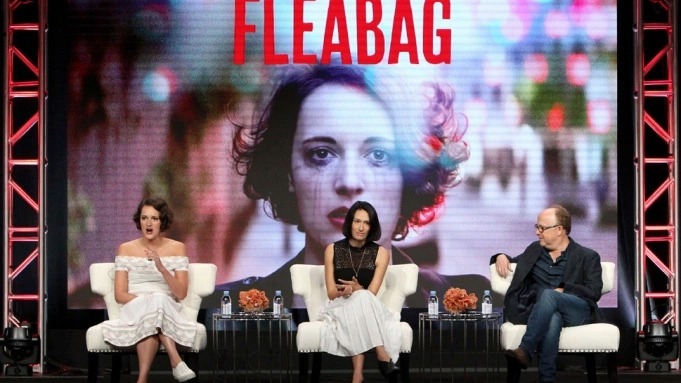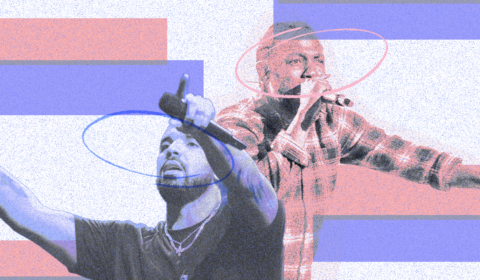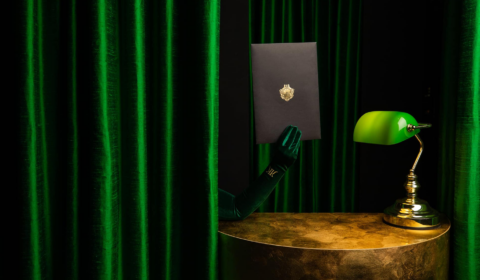Binge watching shows in one sitting is upping the overall quality of our TV shows; but is it dulling the overall user experience?
As streaming services such as Netflix and Amazon have crept into our lives, slowly coming to dominate our viewing experience, many of us have found that our viewing habits have completely transformed. A high-quality drama that was once drip fed to us weekly is now consumed in one or two sittings. Netflix watches us gobble its content with a cold fascination, like scientists watching caged mice gobbling heroin laced cheddar, trying to work out how to keep us glued to our screens for longer.
A 2016 Netflix survey reported that about 61% of its users admitted to binge-watching television on a regular basis, with the majority of responders defining ‘binging’ as watching between two and six episodes in a single sitting (to be honest I see that as a fairly conservative estimate, but to each their own). Clunky TV sets from the 90s have become sleek tablets and laptops, with the internet now being the default vehicle for content consumption. With companies like Disney and Warner Brothers putting plans in the works to create streaming platforms on their own, it looks like the trend of releasing whole series’ at once will become the norm.


Whilst multiple cashed-up corporations trying to ‘win’ the streaming game has inevitably led to an upsurge in quality TV, there are some benefits to the old-world serialised distribution method that streaming is slowly sapping away. Instant TV means that viewing has become a solipsistic process. We’ve become more concerned with ‘binge-racing’ to avoid spoilers than having meaningful discussion about the themes and impacts of our favourite shows.
If 2019s viewership ratings are anything to go by, it looks like we shouldn’t discount network TV storytelling just yet.
Why we binge
Netflix, destroyer of productivity and the lazy Sunday’s best friend since time immemorial, has come a long way from its humble beginnings as a DVD lending service. The company, reportedly born out of CEO Reed Hastings’ frustration with late fees from rental stores, has led the charge of online television ever since it added streaming capabilities back in 2007.
Since then it’s amassed a whopping 167 million subscribers – and that’s probably nothing compared to how many people actually watch Netflix content (anyone who’s currently mooching off someone else’s account please raise your hand…). Ever since Netflix broke from convention by releasing all episodes of House of Cards season one on the one day in 2013, taking the frankly remarkable gamble that people were ready for a seismic disruption in their viewing habits, it’s hard to remember a time when we had to wait for content.
It isn’t hard to see why we adapted so quickly to the autonomy of streaming. The subscription-based nature of the platform removes the frustration of ad breaks. Not only does this prevent unwelcome interruptions that shatter a viewer’s suspension of disbelief by abruptly throwing them out of meticulously crafted worlds, it also changes the way stories are told.
There’s no longer a need to force act-breaking cliff handers between breaks, which often sit uncomfortably within the narrative, to ensure that viewers will continue watching. The serialised yet instant nature of the Netflix original means that it can rely more on subtlety, as plot points exist in the short-term rather than the long-term memory.
As stated in an interview with Den of Geek, Hastings has argued that Netflix is ‘just a learning machine. Every time we put out a new show, we are analysing it, figuring out what worked and what didn’t, so we get better next time’. The result of this mechanical learning has been a stream of immersive, multi-layered dramas released by Netflix tailored to audience desires.
Recently, Netflix’s devotion to data analysis has seen them produce a study that details how long it takes to get hooked on specific shows. In an analysis of shows like Breaking Bad and Arrow, anywhere between one and eight episodes need to be watched before viewers see the series out to its end. Interestingly, in a crushing blow to Network TV programme packages, not a single show’s hook point was during its pilot. This essentially offers a massive slice of justification pie for the way in which streaming platforms like Netflix and Amazon roll out their shows. Theoretically, it’s the only way to snare a fan’s dedication.
Advocates of the binge are celebrating the new instantaneous satisfaction of the one-day release as the end of many television irritants. Gone are the days of long ‘previously on’ sections that give away large sections of the plot (oh, they’re showing us that shop clerk from episode 3, I guess he’s the killer), and gone are the days where sitcoms must rely on temporally disconnected narratives to bring characters together.


So, if everyone is loving the instantaneous format, then it stands to reason that the biggest shows of 2019 so far probably live in this camp. Not so! In the UK, the biggest shows of the year so far have been Game of Thrones, Line of Duty, and Fleabag. What did all these series have in common? They were traditional network dramas released on a weekly basis.
A spanner has entered the works.






















